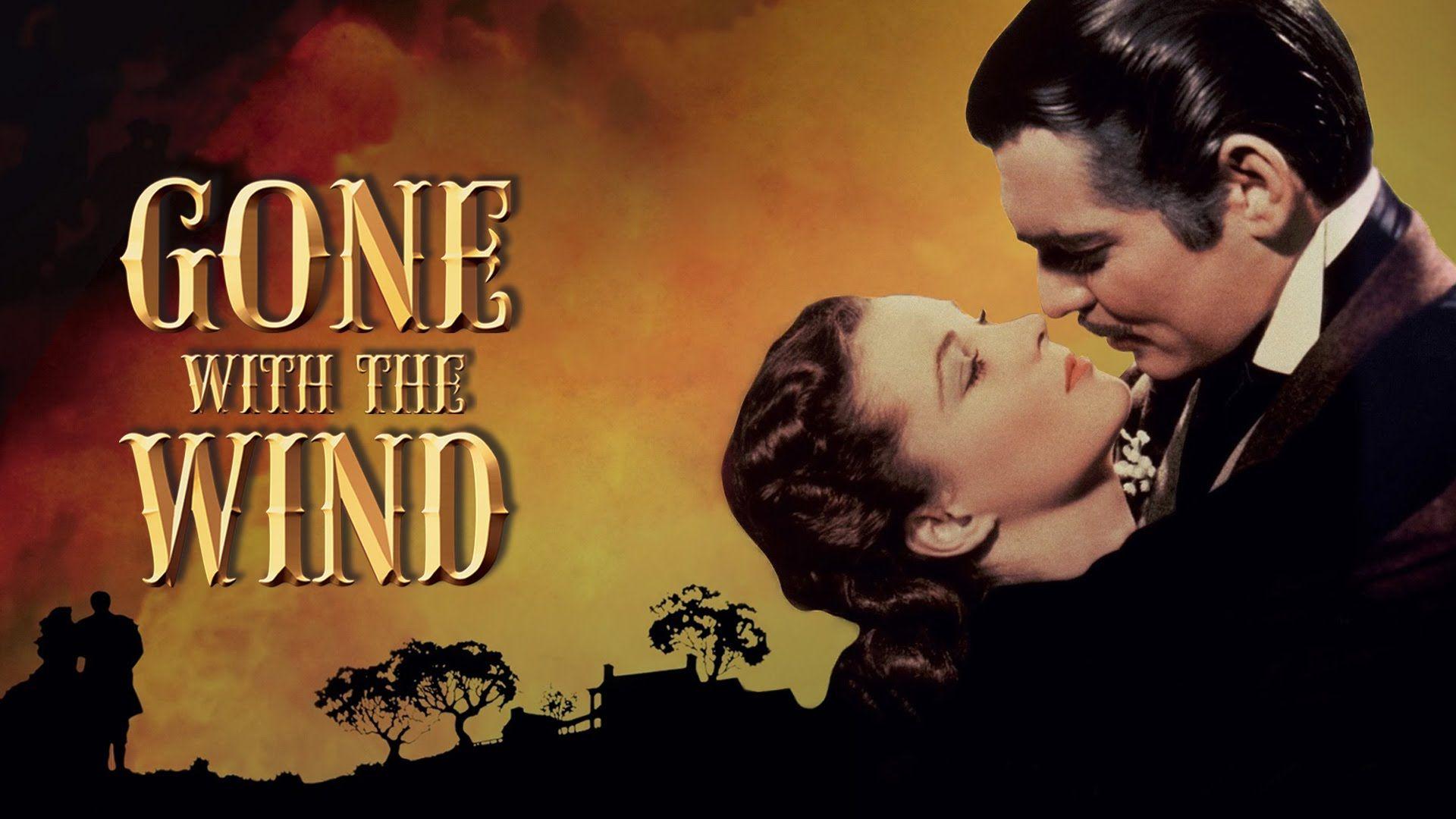Gone with the Wind Reading 《飘》
Gone With The Wind
Margaret Mitchell
Part I Chapter I
SCARLETT O’HARA was not beautiful, but men seldom realized it when caught by her charm as the Tarleton twins were. In her face were too sharply blended the delicate features of her mother, a Coast aristocrat of French descent, and the heavy ones of her florid Irish father. But it was an arresting face, pointed of chin, square of jaw. Her eyes were pale green without a touch of hazel, starred with bristly black lashes and slightly tilted at the ends. Above them, her thick black brows slanted upward, cutting a startling oblique line in her magnolia-white skin—that skin so prized by Southern women and so carefully guarded with bonnets, veils and mittens against hot Georgia suns.
Seated with Stuart and Brent Tarleton in the cool shade of the porch of Tara, her father’s plantation, that bright April afternoon of 1861, she made a pretty picture.Her new green flowered-muslin dress spread its twelve yards of billowing material over her hoops and exactly matched the flat-heeled green morocco slippers her father had recently brought her from Atlanta. The dress set off to perfection the seventeen-inch waist, the smallest in three counties, and the tightly fitting basque showed breasts well matured for her sixteen years. But for all the modesty of her spreading skirts, the demureness of hair netted smoothly into a chignon and the quietness of small white hands folded in her lap, her true self was poorly concealed. The green eyes in the carefully sweet face were turbulent, willful, lusty with life, distinctly at variance with her decorous demeanor. Her manners had been imposed upon her by her mother’s gentle admonitions and the sterner discipline of her mammy; her eyes were her own.

On either side of her, the twins lounged easily in their chairs, squinting at the sunlight through tall mint-garnished glasses as they laughed and talked, their long legs, booted to the knee and thick with saddle muscles, crossed negligently. Nineteen years old, six feet two inches tall, long of bone and hard of muscle, with sunburned faces and deep auburn hair, their eyes merry and arrogant, their bodies clothed in identical blue coats and mustard-colored breeches, they were as much alike as two bolls of cotton.
Outside, the late afternoon sun slanted down in the yard, throwing into gleaming brightness the dogwood trees that were solid masses of white blossoms against the background of new green. The twins’ horses were hitched in the driveway, big animals, red as their masters’ hair; and around the horses’ legs quarreled the pack of lean, nervous possum hounds that accompanied Stuart and Brent wherever they went. A little aloof, as became an aristocrat, lay a black-spotted carriage dog, muzzle on paws, patiently waiting for the boys to go home to supper.
Between the hounds and the horses and the twins there was a kinship deeper than that of their constant companionship. They were all healthy, thoughtless young animals, sleek, graceful, high-spirited, the boys as mettlesome as the horses they rode, mettlesome and dangerous but, withal, sweet-tempered to those who knew how to handle them.
Although born to the ease of plantation life, waited on hand and foot since infancy, the faces of the three on the porch were neither slack nor soft. They had the vigor and alertness of country people who have spent all their lives in the open and troubled their heads very little with dull things in books. Life in the north Georgia county of Clayton was still new and, according to the standards of Augusta, Savannah and Charleston, a little crude. The more sedate and older sections of the South looked down their noses at the up-country Georgians, but here in north Georgia, a lack of the niceties of classical education carried no shame, provided a man was smart in the things that mattered. And raising good cotton, riding well, shooting straight, dancing lightly, squiring the ladies with elegance and carrying one’s liquor like a gentleman were the things that mattered.
In these accomplishments the twins excelled, and they were equally outstanding in their notorious inability to learn anything contained between the covers of books. Their family had more money, more horses, more slaves than any one else in the County, but the boys had less grammar than most of their poor Cracker neighbors.
It was for this precise reason that Stuart and Brent were idling on the porch of Tara this April afternoon. They had just been expelled from the University of Georgia, the fourth university that had thrown them out in two years; and their older brothers, Tom and Boyd, had come home with them, because they refused to remain at an institution where the twins were not welcome. Stuart and Brent considered their latest expulsion a fine joke, and Scarlett, who had not willingly opened a book since leaving the Fayetteville Female Academy the year before,thought it just as amusing as they did.
“I know you two don’t care about being expelled, or Tom either,” she said. “But what about Boyd? He’s kind of set on getting an education, and you two have pulled him out of the University of Virginia and Alabama and South Carolina and now Georgia. He’ll never get finished at this rate.”
“Oh, he can read law in Judge Parmalee’s office over in Fayetteville,” answered Brent carelessly. “Besides, it don’t matter much. We’d have had to come home before the term was out anyway.”
“Why?”
“The war, goose! The war’s going to start any day, and you don’t suppose any of us would stay in college with a war going on, do you?”
“You know there isn’t going to be any war,” said Scarlett, bored. “It’s all just talk. Why, Ashley Wilkes and his father told Pa just last week that our commissioners in Washington would come to—to—an—amicable agreement with Mr. Lincoln about the Confederacy. And anyway, the Yankees are too scared of us to fight. There won’t be any war, and I’m tired of hearing about it.”
“Not going to be any war!” cried the twins indignantly, as though they had been defrauded.
“Why, honey, of course there’s going to be a war,” said Stuart. The Yankees may be scared of us, but after the way General Beauregard shelled them out of Fort Sumter day before yesterday, they’ll have to fight or stand branded as cowards before the whole world. Why, the Confederacy—”
Scarlett made a mouth of bored impatience.
If you say ‘war’ just once more, I’ll go in the house and shut the door. I’ve never gotten so tired of any one word in my life as ‘war,’ unless it’s ‘secession.’ Pa talks war morning, noon and night, and all the gentlemen who come to see him shout about Fort Sumter and States’ Rights and Abe Lincoln till I get so bored I could scream! And that’s all the boys talk about, too, that and their old Troop. There hasn’t been any fun at any party this spring because the boys can’t talk about anything else. I’m mighty glad Georgia waited till after Christmas before it seceded or it would have ruined the Christmas parties, too. If you say ‘war’ again, I’ll go in the house.”
She meant what she said, for she could never long endure any conversation of which she was not the chief subject. But she smiled when she spoke, consciously deepening her dimple and fluttering her bristly black lashes as swiftly as butterflies’ wings. The boys were enchanted, as she had intended them to be, and they hastened to apologize for boring her. They thought none the less of her for her lack of interest. Indeed, they thought more. War was men’s business, not ladies’, and they took her attitude as evidence of her femininity.
Having maneuvered them away from the boring subject of war, she went back with interest to their immediate situation.
“What did your mother say about you two being expelled again?”
The boys looked uncomfortable, recalling their mother’s conduct three months ago when they had come home, by request, from the University of Virginia.
“Well,” said Stuart, “she hasn’t had a chance to say anything yet. Tom and us left home early this morning before she got up, and Tom’s laying out over at the Fontaines’ while we came over here.”
“Didn’t she say anything when you got home last night?”
版权声明:本文为原创文章,版权归donstudio所有,欢迎分享本文,转载请保留出处!






